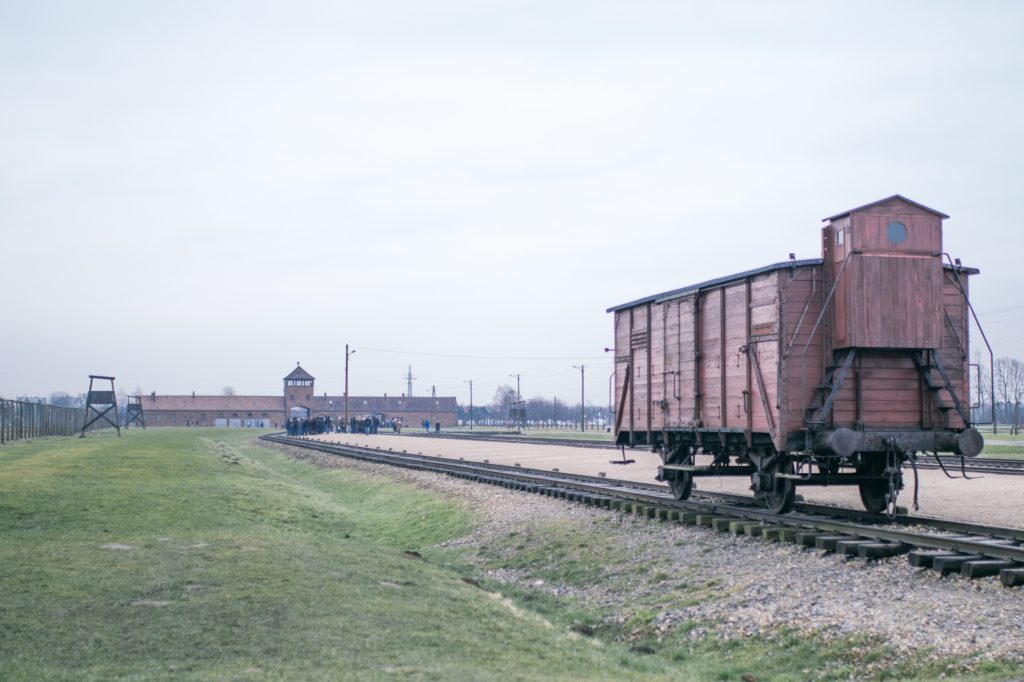Last week the Polish parliament adopted the problematic “Holocaust law” which criminalizes certain statements on Poland’s role in the Holocaust. President Andrzej Duda signed on Tuesday the law but said that he would send it to the country’s Constitutional Court for judicial review, leaving open the possibility of an amendment to the law. EU, despite its recent clampdown on illiberal legislation in Poland, has reacted softly. According to the new law, which in the past was considered as unconstitutional, “whoever publicly and contrary to the facts attributes to the Polish nation or Polish state responsibility or co-responsibility for the Nazi crimes committed by the German Third Reich” is liable to a fine or imprisonment for up to 3 years.
The law, called the law of the Institute of National Remembrance, correctly forbids the use of the term "Polish death camps”. The concentration and extermination camps were built and operated by Nazi-Germany in Nazi-occupied Poland.
While it is forbidden to trivialize the Holocaust, Poland should not be blamed for crimes committed by Nazi-Germany, according to an explanation of the law. However, observers claim that the law risks undermining an open discussion on what took place in occupied Poland during the Second World War.
Last December the European Commission decided to start legal proceedings against Poland to protect the rule of law and the independence of the judiciary in the country. After almost two years of “failed dialogue”, the Commission concluded that there is a clear risk of a serious breach of the rule of law in Poland.
Asked yesterday (5 February) by The Brussels Times on the Commission’s position on the “Holocaust law”, a spokesperson for the Commission referred to a reply given by Vice-President Frans Timmermans to a similar question at a press conference last week (1 February) on a totally different subject.
Frans Timmermans, a former Dutch politician, replied that he could not comment specifically on the law but said that the interpretation of history should be left to the historians.
“As a Dutchman I think that it’s important to know and confront the history of your own country,” he added. “All countries occupied by Nazi-Germany had heroes who fought the occupation but also, sadly, collaborators with the occupiers.”
“This is the reality in which the European Union was created and which it wants to prevent in the future.”
| Collaboration with Nazi-Germany The fate of the Jewish population during the Nazi occupation was dependent on the extent of anti-Semitism in the country and the existence of a government that could protest against the Nazi atrocities and protect the Jews. Statistics on the percentage of Jews who survived reflects the brutality of the occupation and the cooperation with Nazi-Germany. The Polish government was in exile in London during the war and was among the first to protest against the mass extermination of the Jews. But Poland as a country was doomed to serve as the “lebensraum” (living space) of Nazi-Germany and both Poles and Jews were targeted. Jan Karski, the Polish diplomat who in 1942 reported on the Nazi atrocities to the Polish exile government and in vain tried to alert the allied powers to react to stop the mass extermination of the Jews, wrote: “All nations under Hitler’s occupation suffered losses, millions of victims. However all the Jews were victims.” While Poland has many heroes who risked their lives to save Jews and were recognized as "righteous among the nations" by Yad Vashem in Jerusalem, there were also local people who betrayed their Jewish neighbors or participated in the killings as happened in the small town Jedwabne. There were no death camps in Western Europe and Jews were deported to the Nazi death camps in Poland, often with the cooperation of national and local authorities. In e.g. the Netherlands, which lost a majority of its Jewish population in the Holocaust, the Supreme Court ruled in 1940 that the administrative isolation of its Jewish population did not violate the country’s constitution. After the war, the judges in the Supreme Court continued their career. According to a new exhibition in Amsterdam, the ID-cards, which could not be falsified, were distributed to the population as “your best friend” as they would facilitate food rationing. But later they also enabled the Nazi occupiers to identify the Dutch Jews and deport them to the death camps. |
The Brussels Times

